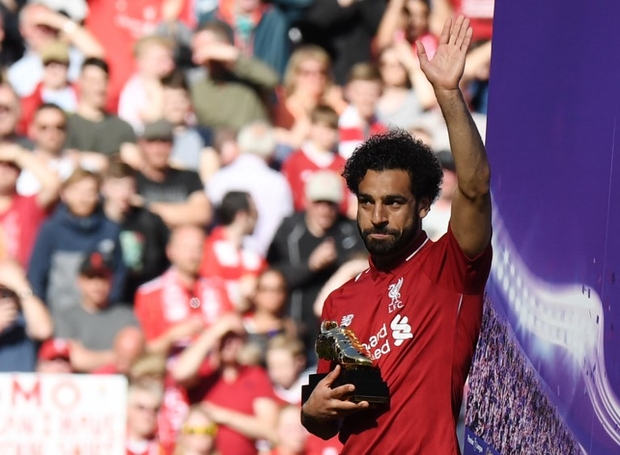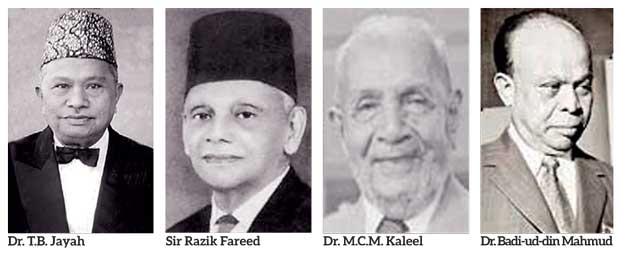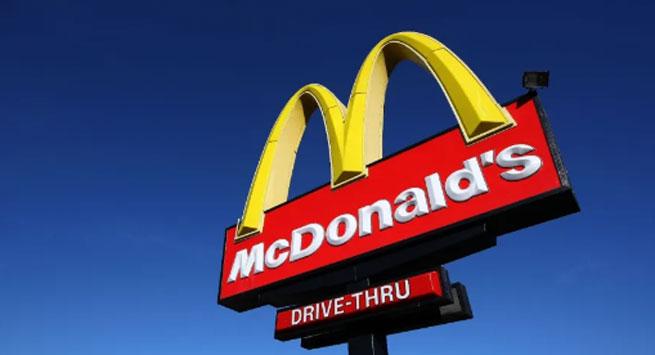Stars such as Mohamed Salah portray favourable images of Muslims, helping to reduce stereotypes and break down barriers within communities

On 6 May, around 3,000 people gathered outside the seat of government in London for what they called a “day of freedom”.
A succession of speakers from hard-right groups took turns denouncing a perceived threat to British values. One described Islam as a “filthy cult”; another called it “satanic”. A passing Asian family was heckled with racial abuse. A Muslim vlogger was punched several times before being removed by police.
The rally marked a new peak of an Islamophobic wave sweeping Britain. We have seen attacks on mosques double in the past year, the creation of “Punish a Muslim” day, and a barrage of dishonest attacks on Muslims from the largest national newspapers. A recent report found the majority of respondents believed “Islam poses a serious threat to Western civilisation”.
But while Muslims are demonised in the media, on the streets and in their places of worship, they are also icons of Britain’s national obsession – football.
Salahmania
A few days after the rally, a very different crowd gathered across town at the plush Landmark Hotel to watch Liverpool’s Mohamed Salah receive the Football Writers’ Association (FWA) Footballer of the Year award.
Salah had already won the Professional Footballers’ Association Player of the Year prize, and would go on to scoop the Golden Boot with a record-breaking 32 league goals. His dream season concludes with the Champions League final against Real Madrid on 26 May.
Millions of Britons cheer on Muslim players every weekend, and anti-racism campaigners and academics are hoping for a ripple effect on wider society
The Egyptian has rapidly earned legendary status at Anfield and in the famously progressive city of Liverpool, and that appreciation extends to his heritage. He is serenaded with a song that includes the line: “If he scores another few, then I’ll be Muslim too” – a sentiment that echoes around social media on match days. Young Scousers have taken to mimicking his goal celebration prostration.
Salah is a bona fide phenomenon, but he is surrounded by a galaxy of Muslim stars that light up the Premier League. At Liverpool, he has fellow hitman Sadio Mané and midfielder Emre Can for company. Manchester United and Arsenal’s top talents are Paul Pogba and Mesut Ozil. The last two Player of the Year winners were Chelsea’s N’Golo Kanté and Leicester’s Riyad Mahrez.
Millions of Britons cheer on Muslim players every weekend, and anti-racism campaigners and academics are hoping for a ripple effect on wider society.
Changing perceptions
Muslim football stars can help to challenge prejudice, according to Omar Salha, a researcher studying the impact of sport on Muslim integration at the School of Oriental and African Studies (SOAS) in London.
“They play a massive role in framing and reframing public perceptions,” Salha said. “They have portrayed favourable images of Muslims and enabled more understanding of Muslims, which has reduced stereotypes and broken down barriers within communities.”
Salha added that the spectacular performances of players such as Salah, allied with the vast attention paid to football, have elevated the discourse around Islam and prejudice to a higher level than any scholar could have achieved.
https://www.facebook.com/MiddleEastEye/videos/1742976242434423/
But he noted that the nature of fandom is fickle and contingent on performances. Muslim players are enjoying a golden era, but would Mo Salah’s faith be celebrated if his goals dried up?
Sports fans can also compartmentalise their prejudices while enjoying a player’s performance, according to Piara Powar, head of Football Against Racism in Europe (FARE). “We see a lot of cognitive dissonance,” he said. “It is quite possible to feel suspicious of someone and appreciate them at the same time. We saw that with black players (in the 1980s) that were accepted in football but not in society – football was seen as their niche.”
Muslim ambassadors
British football has certainly moved on from the 1980s when black players were pelted with bananas and subjected to monkey chants. Powar suggests that where the game once lagged behind wider society, globalisation and a massive influx of players from around the world has normalised differences, along with a crackdown on racism inside stadiums.
This improvement in atmosphere has given players greater confidence to express their culture. Powar notes that where a player might have muttered a quiet pregame prayer in the late 2000s, at a time when Egyptian striker Mido was being taunted as a terrorist, we now see players like Ozil performing rituals openly.
READ MORE►
‘Our son’: Mohamed Salah splashes cash to give home village a cleaner future
Some players have embraced an ambassadorial role. Striker Demba Ba introduced the prostration celebration to Newcastle United and often discussed his faith. He was fully embraced by Newcastle fans, who sang about his goals after Ramadan and attended a rally against Islamophobia in large numbers.
Former West Ham and Tottenham striker Frédéric Kanouté has been outspoken in defence of his community, criticising Donald Trump’s policies and lamenting that Muslims “have to prove or justify themselves that they are not terrorists before being allowed to talk”. Kanouté has also funded mosque restoration and supported Muslims in poverty.
Others shun the spotlight but still provide positive representations of their culture. “Some athletes are comfortable doing it, but they shouldn’t be in a position of having to be spokesman for more than a billion people,” said Rimla Akhtar, a board member of anti-racist group Kick it Out and chair of the Muslim Women’s Sports Foundation.
“Speaking at conferences or in the media is often not as powerful as how you carry yourself on a day-to-day basis. A lot of athletes carry themselves in a way that reflects their identity and how they need to live as a Muslim, whether it’s praying like Ozil, or Salah prostrating when he scores … or charitable giving without wanting attention.”
Empowering the next generation
The greatest social benefit of the current crop of Muslim superstars may be less to do with challenging prejudices, than with convincing young Muslims that they truly belong in today’s Britain.
Kick it Out found increasing abuse directed at Muslims in school playgrounds and in the grassroots game, part of a resurgence of xenophobia that followed Britain’s vote to leave the EU. Having heroes like Salah, Ozil and the rest offers a pull-factor to participation that balances the hostility pushing them out.
Having heroes like Salah, Ozil and the rest offers a pull-factor to participation that balances the hostility pushing them out
“I do see an indirect, positive impact for young children growing up having to deal with really difficult situations and bullying,” Akhtar said. “I think it’s important for children growing up to see role models who look like them and do the same things.
“For young people finding their way in the world, to see people like Salah living your values can have a massive impact on accepting yourself, and feeling empowered that what you believe in can lead to something as great as these players.”
For all the sensational performances produced by Liverpool’s No.11, his greatest legacy may be off the pitch.
– Kieron Monks is a London-based writer for outlets including CNN, The Guardian, and Prospect magazine, covering social movements, sports, and the intersection between them.
The views expressed in this article belong to the author and do not necessarily reflect the editorial policy of Middle East Eye.
Photo: Liverpool’s Egyptian midfielder Mohamed Salah celebrates after being awarded the Golden Boot in Liverpool, northwestern England, on 13 May 2018 (AFP)
source http://www.middleeasteye.net
Post Disclaimer | Support Us
Support Us
The sailanmuslim.com web site entirely supported by individual donors and well wishers. If you regularly visit this site and wish to show your appreciation, or if you wish to see further development of sailanmuslim.com, please donate us
IMPORTANT : All content hosted on sailanmuslim.com is solely for non-commercial purposes and with the permission of original copyright holders. Any other use of the hosted content, such as for financial gain, requires express approval from the copyright owners.
 Sri lanka Muslims Web Portal Sri Lanka Muslims News Center
Sri lanka Muslims Web Portal Sri Lanka Muslims News Center
 Donate
Donate


